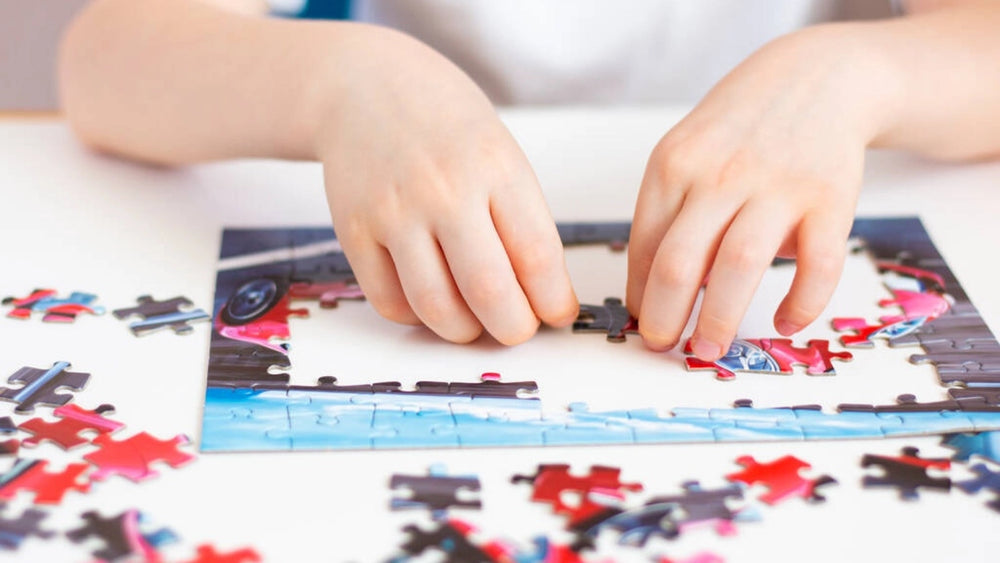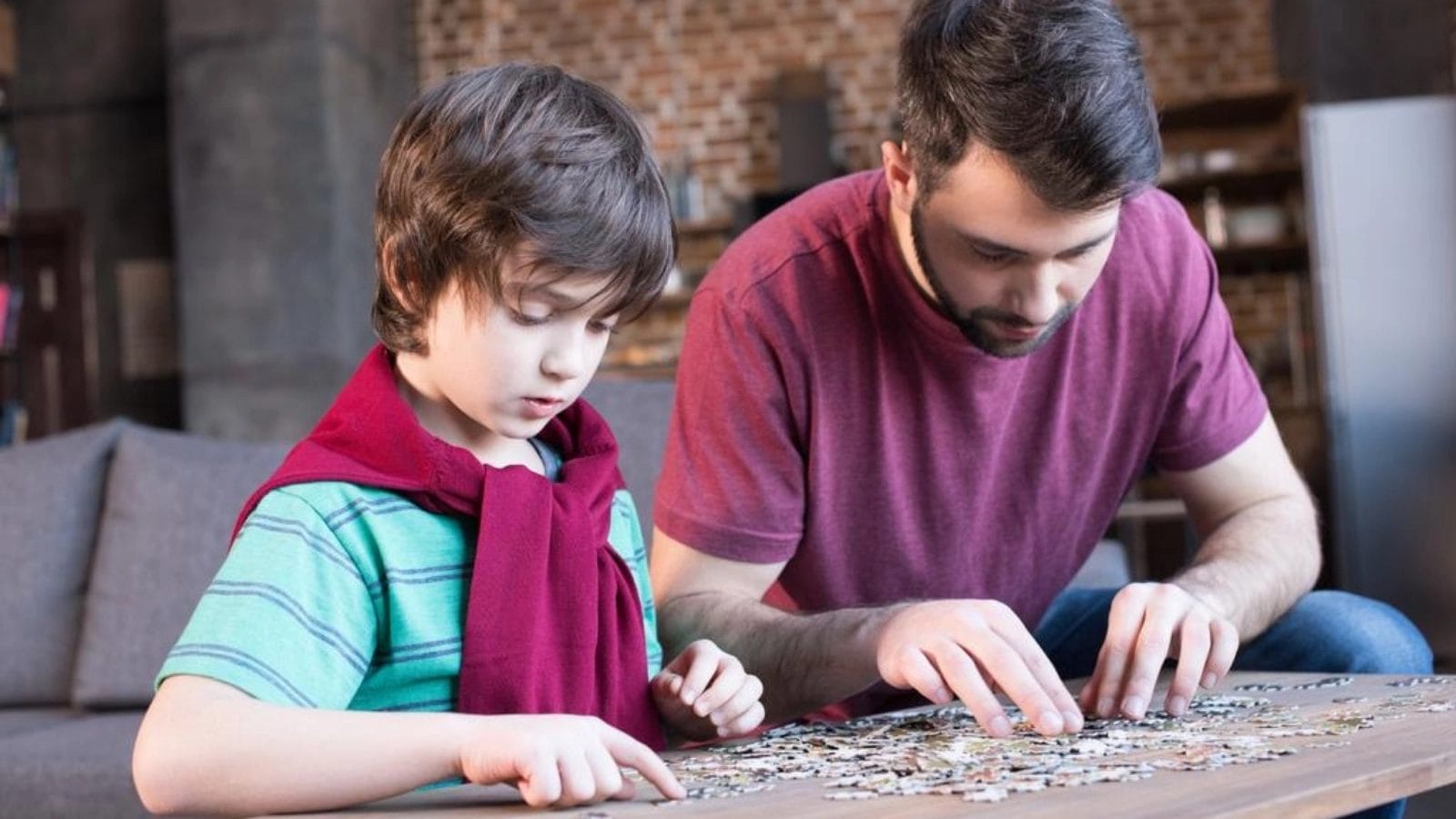
Have you ever considered the myriad skills you're honing while piecing together a jigsaw puzzle?
Beyond the surface, you're not just connecting pieces. Instead, you're enhancing your problem-solving abilities and sharpening your attention to detail. Each piece you fit together also fine-tunes your motor skills.
But that's just the beginning. Think about the rich cultural stories each puzzle narrates and the ethical judgments you subtly exercise. Are you curious about how these activities translate into real-world skills?
Key Takeaways
- Jigsaw puzzles enhance problem-solving by analyzing colors, shapes, and patterns.
- They improve memory by exercising short-term recall and strengthening brain connections.
- Puzzles develop fine motor skills and hand-eye coordination through piece manipulation.
- They foster attention to detail and analytical skills by distinguishing subtle differences.
- Collaborative puzzle-solving boosts storytelling, communication, and social skills.
What Skills Do Jigsaw Puzzles Develop?

As you explore jigsaw puzzles, you'll notice they're not just for fun. They're key in boosting several critical skills.
1. Problem-Solving Skills
When you tackle a jigsaw puzzle, you actively hone your problem-solving skills. Each piece challenges your critical thinking and reasoning skills. You must strategize and sometimes use trial and error. These will enhance your problem-solving abilities.
2. Memory Improvement
Beyond problem-solving skills, jigsaw puzzles considerably help boost your memory. Remembering where pieces are and how they're positioned exercises your short-term memory. This exercise strengthens connections between your brain cells. It fortifies your cognitive development and reduces the risk of cognitive decline.
3. Attention to Detail
When doing puzzles, paying attention to detail is important. Each puzzle piece's unique shape, color, and pattern demands your undivided attention.
Attention to detail isn't just about spotting the right piece. It's about improving your analytical skills and focusing despite the complexity. Puzzles truly sharpen your mind's eye.
4. Fine Motor Coordination
Jigsaw puzzles also tremendously boost your fine motor coordination. Manipulating those tiny pieces demands precise finger control and small movements. Thus, you'll enhance your dexterity.
You refine your hand-eye coordination as you pick up, rotate, and snap pieces together. Each piece requires careful handling. This fosters the development of fine motor skills. These skills are essential for tasks that demand accuracy, like writing.
5. Spatial Awareness
You also enhance your spatial awareness as you piece together a jigsaw puzzle. This activity improves your ability to understand and manipulate objects within three-dimensional space.
You develop a keener sense of spatial relationships and depth perception. This is essential for tasks that need precise movement and orientation.
Additionally, solving puzzles boosts your pattern recognition skills. These skills help you notice how different puzzle pieces fit into a larger context.
6. Patience and Perseverance
Tackling a jigsaw puzzle immensely develops your patience and perseverance. You'll experience the trial and error of matching pieces. This process demands you stick with it even when progress stalls.
This persistence teaches you to manage frustration and maintain focus. As you push through these challenges, you build grit. It's a vital trait for tackling life's bigger hurdles.
7. Stress Relief
While solving puzzles, you might notice a significant drop in your stress levels. Puzzle play offers a meditative calm. It mimics mindfulness practices through the repetitive motion of placing pieces.
As you focus on fitting each shape, your mind drifts away from daily worries. So you can lower stress and anxiety effectively.
When you finally complete a puzzle, a dopamine rush boosts your mood. It gives you a profound sense of satisfaction. This rewarding finish not only cheers you up but also reinforces your self-esteem.
8. Language Skills
Jigsaw puzzles do more than just entertain. They also enhance your language skills considerably. You're expanding your vocabulary as you describe puzzle shapes, colors, and patterns.
This process especially helps children develop a lot of verbal communication. Solving puzzles with others turns into a lively exchange. It's full of questions and dialogue. This will push kids to listen carefully and respond thoughtfully. Thus, they can boost their overall language development.
9. Collaboration and Teamwork
Working on a puzzle with others helps you develop teamwork and collaboration skills. Solving puzzles as a team helps you build communication and cooperation. You also develop an ability to leverage team strengths.
Working together towards a shared goal enhances interpersonal skills and emotional intelligence. It teaches kids how to solve problems together and builds teamwork.
This shared activity also offers quality time, bonding, and learning from others.
Additional Benefits of Jigsaw Puzzles
Aside from the above benefits, jigsaw puzzles help you more than one might expect.
10. Cultural Connections
Puzzles can help bridge cultural gaps and deepen your appreciation for diverse traditions. When you puzzle together cultural scenes, you're exploring the world.
Cultural motifs enrich your understanding of history and values. When communities come together to solve a puzzle featuring distant landscapes or local traditions, they share more than knowledge but create unity. This act builds respect and understanding across various backgrounds.
11. Ethical Judgement
Working on jigsaw puzzles helps develop ethical judgment. Deciding whether to solve puzzles alone or with help involves making moral choices. Placing each piece can represent ethical challenges, encouraging careful decision-making.
Collaborating on puzzles promotes fairness and understanding others' viewpoints. This boosts your cognitive skills and prepares you for real-life ethical situations.
Conclusion
Doing jigsaw puzzles will enhance your problem-solving skills and boost your memory. Every piece demands your attention to detail and sharpens your fine motor skills.
Beyond the cognitive benefits, puzzles open doors to cultural understanding. They allow you to explore narratives and ethical dilemmas. So, next time you do a puzzle, you'll improve various skills useful for real-life situations.
FAQs
What Skills Do Jigsaw Puzzles Develop in Adults?
You'll enhance your problem-solving abilities, improve concentration, and boost visual-spatial reasoning. They also foster patience and persistence while providing a great way to relax and decrease stress levels.
What Are the Benefits of Playing Jigsaw Puzzles?
Playing jigsaw puzzles boosts your memory and enhances problem-solving skills. They also relax, helping reduce stress while improving your focus and attention span. Plus, you'll feel great satisfaction after completing a challenging puzzle.
What Are the Learning Outcomes of Jigsaw Puzzles?
You'll enhance your problem-solving, fine motor skills, and visual-spatial reasoning. They also improve memory and concentration. You can also boost your confidence as you piece together each challenge.